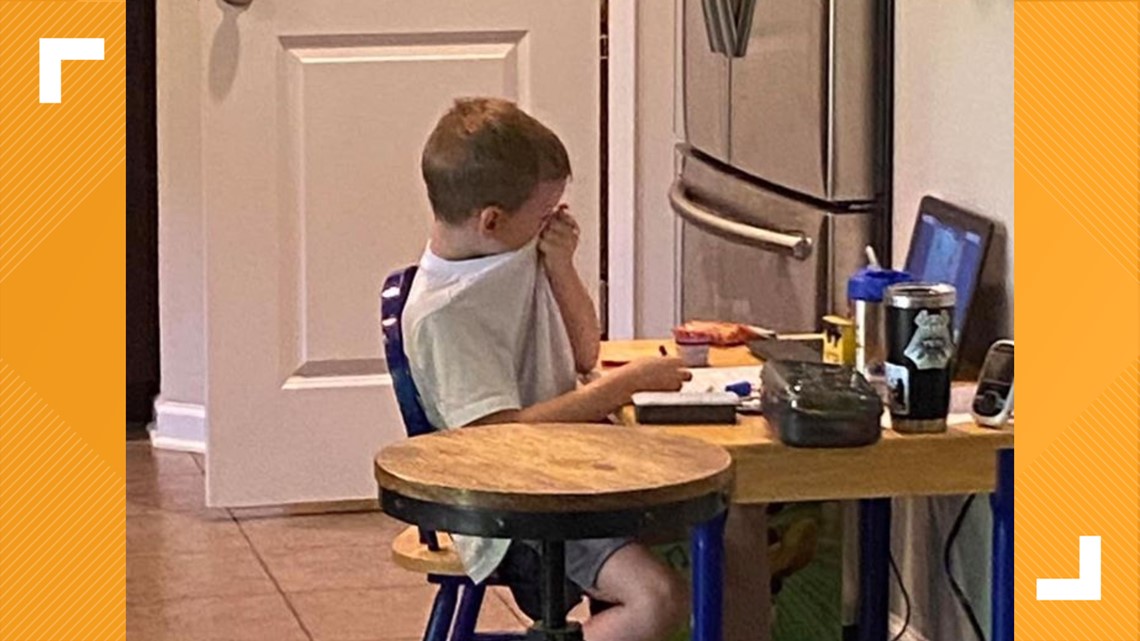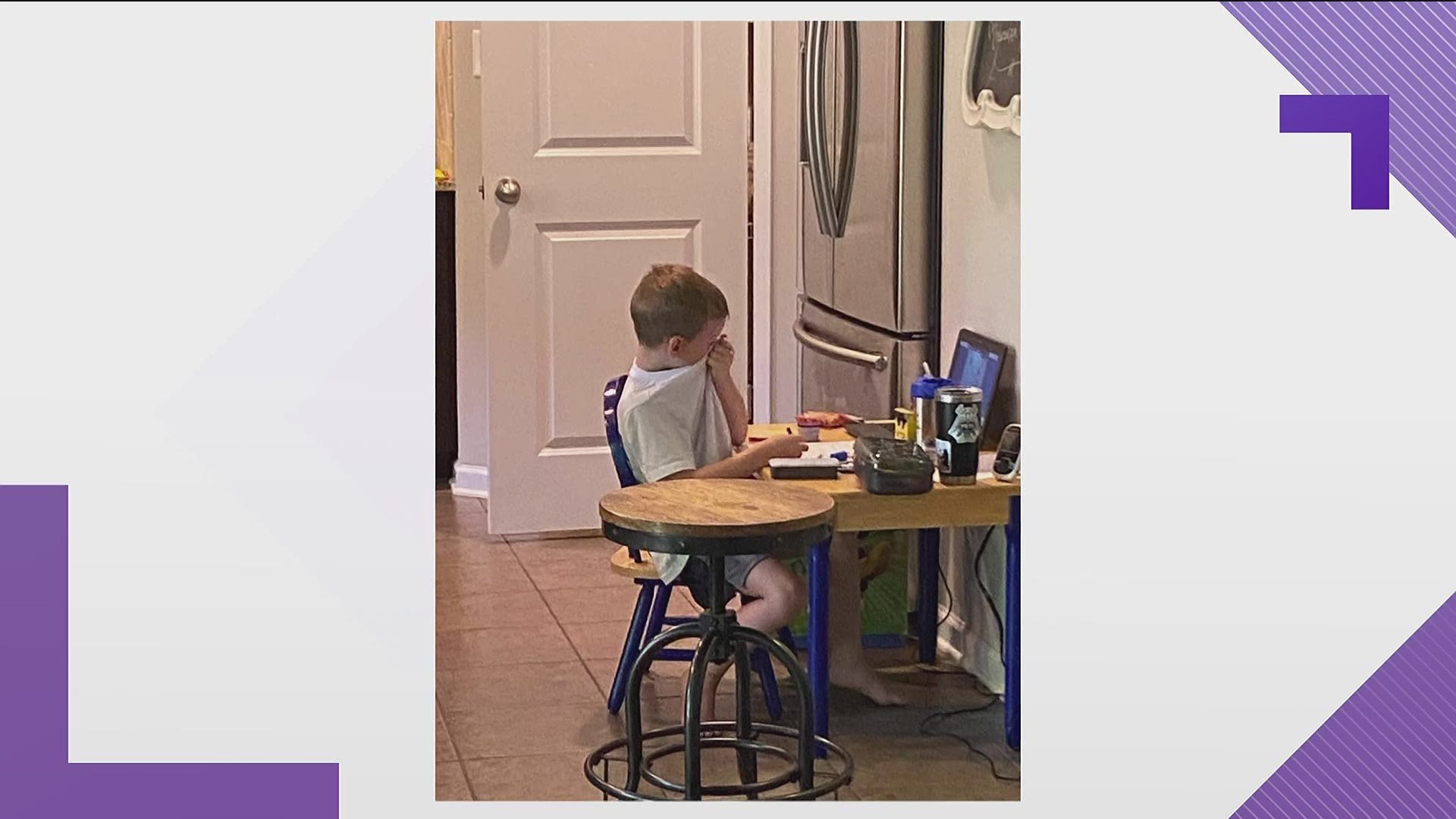COWETA COUNTY, Ga. — One mother said her heart is breaking for her 5-year-old boy and other children like him as they struggle to assimilate into virtual learning culture.
Jana Coombs posted a picture of her son as he struggled with digital learning. The picture showed the young boy so frustrated -- that he put his head down and started crying in his virtual Coweta County Kindergarten class.
Coombs said she is just as frustrated with virtual learning as her young son.
"I just took that picture because I wanted people to see reality. And then he came over and we hugged and I was crying right along with him," she said.
She described the first day of virtual learning as chaos, trying to also manage a 2nd and 4th grader in online school and a 7-month-old infant.
"Juggling a household, having an infant in the house, getting 5,000 emails a day from all their teachers, trying to keep up ... different apps, different codes, different platforms, some links don't work. You're running from one laptop to another," she said.
Her husband Luke says all three of their children in online school are missing out. They want their kids back to school, face to face.


"A lot of what they're learning is getting lost in translation because they're not getting interaction on a personal level," Luke explained.
Sylvan Education Expert of Alpharetta, Michelle Cline, says they're not alone.
"I get calls from parents in tears all the time saying, I don't know what to do because I'm not a teacher," she said.
She has a doctorate in education and offered seven tips to make the experience better for young kids.
- Establish a set schedule. "Things need to be very regimented, when is bedtime, when is dinner time, when is school time, when is playtime," she said.
- Set an expectation for what online learning looks like. "I can't tell you how many times I've gone into an online session and the kid has been in bed in their pajamas. Kids can't learn that way. They need focus."
- Set daily and weekly agendas and goals. "This will help the parents, as well as the students, stay focused on what it is they have to accomplish."
- Positive Reinforcement. "When we do in center training, we offer tokens, and some of it is for right answers, but others for asking great questions or sitting still."
- Break up screen time into small increments. "As you start to notice your child is fading, that's a great time to say, we need a three-minute break. For three minutes, I want you to run around the house and count all the ceiling fans and tell me how many you see."
- Encourage Independence
- Don't be afraid to ask for help
Ty Lewis at Educationally Speaking agrees and says that asking your community for help is smart.
She also thinks it's important to pour into your kids each day.
"Affirm your child. You know how you are when you get up in the morning, getting ready for your job, and you're like, I don't want to go. If they get up and start the day like that, that's how they'll view virtual learning. So affirm them. You are gifted! You're going to have a great day," Lewis said.
Even though it's difficult, she says parents can make this a positive experience for their kids.
"School, even though it's academic, it's also a place where you can bring learning to life. So have fun with your child, let them sit next to you in a space for learning, and make this an experience full of joy and love. So they will come to the computer like, yes, I am so excited to learn," she explained.
The Coombs family gives the teachers a lot of credit for the success their children have had in virtual learning so far.
"The teachers have done an amazing job. They're really organized, they're doing everything they can, but it's pretty difficult to get a Kindergartner to follow along and keep them engaged," Luke said.
So many people who saw the photo of their son had the same experience and were just as frustrated. A lot of people left encouragement in the comments, and hope for a brighter day tomorrow.
TiAnn Walker commented on the Facebook post with "Kindergartners cry in real school too as they try to adapt. Kids are resilient! Sending virtual hugs!"

